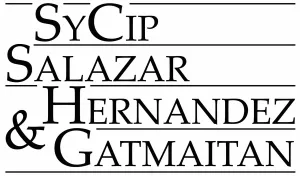- in United States
- within Environment, Media, Telecoms, IT, Entertainment and Technology topic(s)
Republic Act No. 9003, also known as the Ecological Solid Waste Management Act of 2000, is a landmark environmental legislation designed to meet the country's waste management problems. It requires local government units to achieve 25% waste reduction through re-using, recycling, and composting activities and other resource recovery activities. However, two decades after its enactment, solid waste management remains to be a major challenge. The Philippines produces over 21 million metric tons of garbage every year, with the National Capital Region as the biggest producer of garbage.
In this light, bills have been filed at the Philippine Senate to further address the problems of excessive waste and garbage disposal. These include the following:
- Total Ban of Waste Importation Act (Senate Bill No. 1329) - It proposes to prohibit bringing in of all kinds of waste and its by-products or residues from foreign countries into the Philippines. Violations will be punishable by imprisonment, ranging from 8 to 12 years, or by a fine ranging from PhP1.5 million to PhP15 million.
- E-Waste Management Act (Senate Bill No. 751) - It proposes to require manufacturers of electronic equipment to adopt a recovery plan that would, among others, enable the consumer to recycle electronic equipment without paying a separate fee. Accordingly, manufacturers must collect from consumers any electronic equipment that has reach the end of its useful life. In turn, electronic equipment collected shall be recycled and/or re-used.
- Single-Use Plastics Regulation and Management Act (Senate Bill No. 246) - It proposes to phase-out single-use plastics by all business enterprises to consumers within one year from its effectivity. Single-use plastic manufactured or used before the law's effectivity will be recycled. Incentives will be given to consumers who bring their own reusable or recyclable containers for take-outs and selling of food and beverages.
- Waste-To-Energy Act (Senate Bill Nos. 989, 177, and 151) - These aim to promote and support the establishment of waste-to-energy facilities that would convert non-recyclable waste materials into usable heat, electricity, or fuel through a variety of processes that do not emit toxic and poisonous fumes into the environment. Incentives, including tax benefits, will be given to operators of waste-to-energy facilities.
- Zero Food Waste Act (Senate Bill Nos. 785 and 240) - These propose to require food-related businesses (such as food manufacturers, supermarkets, restaurants, cafeterias, and hotels) to, among others, enter into a contract with: (i) food banks to redistribute edible food wastes to the food insecure; and (ii) waste management and recycling enterprises to recycle inedible food wastes into fertilizers or composts.
To become law, these bills must be passed by both houses of Congress and approved by the Philippine President.
The content of this article is intended to provide a general guide to the subject matter. Specialist advice should be sought about your specific circumstances.

